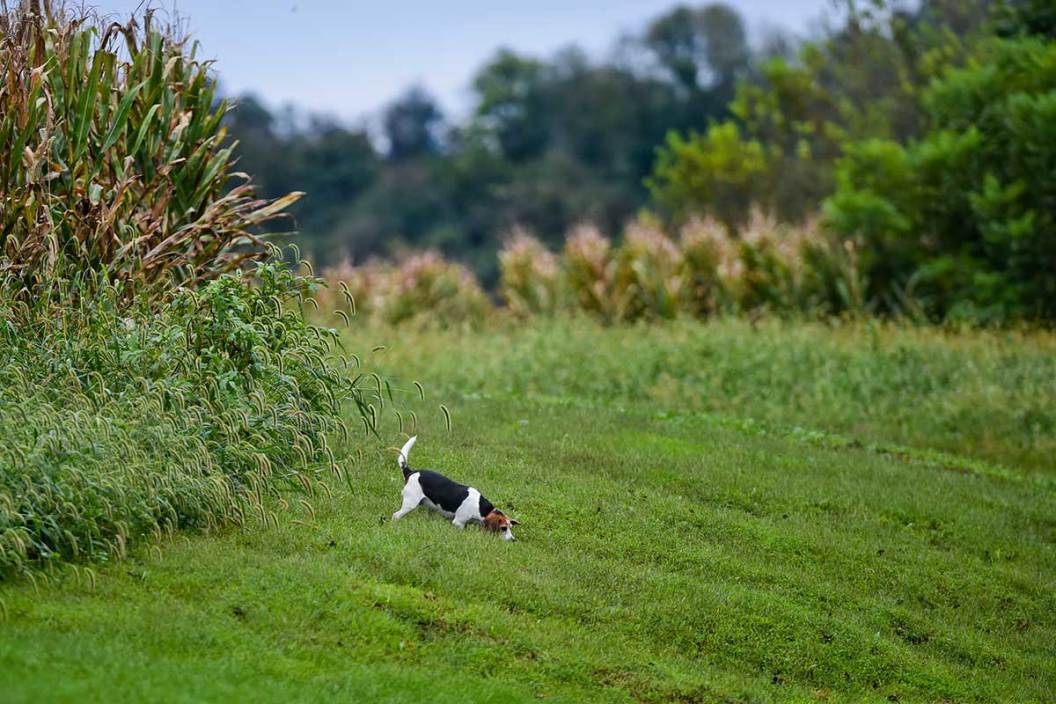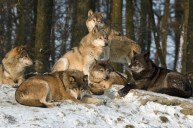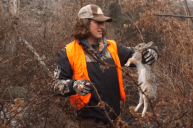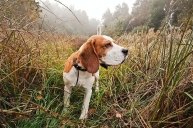Recent legislation proposed in New Hampshire threatened the age-old New England tradition of rabbit hunting with hounds.
A proposed New Hampshire bill, which was introduced in January 2022, set to limit the ability to train hunting dogs with wild rabbits. Presented by representatives Edith Tucker (D) and Dennis Thompson (R), the initiative also had the support of the anti-hunting group Voices of Wildlife in New Hampshire.
The bill was struck down Tuesday, January 25 with an 18 to 1 bipartisan vote by the New Hampshire House Fish and Game and Marine Resources Committee.
New Hampshire House Bill 1308 would have legally banned the "capture, possession and propagation of hares and rabbits for hunting dog training and field trials." This law would have made it extremely difficult, and near impossible, to train and hunt with beagles and hound dogs, a longstanding tradition in the Northeast.
Why the End of This Proposed Hunting Dog Bill Matters
Live-trapped cottontail rabbits or hares are often used for training hounds that take a bit longer to learn the process than their peers. Beagle clubs use large fenced in enclosures for training, where dogs track the hares or rabbits. Trainers often combine old and young dogs during the sessions.
Sometimes live hares or rabbits are used in field trial competitions as well. These processes are foundational for rabbit hunting in the state, and there are regulatory measures preventing just anybody from freely capturing wild rabbits. Permits are issued by the New Hampshire Fish and Game and are required before trapping.
In a previous vote by the New Hampshire Fish and Game Commission, which has no legal oversight, the commissioners voted 10-1 against the bill. The vote was largely deemed symbolic, a show of support for the state's beagle clubs, trainers, and hunters. The 11 commission members that make up the New Hampshire Fish and Game Commission are appointed by the governor, one for each county in the state. No more than six commissioners can be members from the same political party.
Anti-Hunting Group Efforts
This is not the first time Voices of Wildlife in New Hampshire came after rabbit hunting. In 2018, the group filed a legal appeal when the New Hampshire Fish and Game Commission expanded the live-capture of snowshoe hares by beagle clubs by increasing the number of trapping permits, widening the area in which hares could be trapped, and lengthening the trapping season.
This same group has also advocated for changes in the state's regulations for coyote hunting, started a grant-matching initiative to protect the state's beavers, and worked to raise awareness about hound hunting for black bears.
Across the state, rabbit hunters (and the beagle clubs they belong to) rejoiced at the failure to pass the latest bill. There are five recognized beagle clubs in New Hampshire. Had this bill passed, it would have fundamentally ended them, cutting off an important means of training and fundraising via the field trial competitions.
The Northeast Beagle Gundog Federation told Project Upland that this legislation "would essentially destroy these clubs, forcing them to close their doors to members and competitors. Closing these clubs would result in loss of tourism; loss of economic benefits to local, rural economies; loss of recreational opportunities and loss of important land conservation benefits."
David Price, president of the New Hampshire Beagle Club, believes that supporters of the proposed legislation are not educated about the training process. They do not realize the time and money invested in the training sites, habitat, and supplemental feed, he said.
"I think some the people think we take the hares to the pen, dump them out of the box, and let the dogs run them down until they catch them and kill them," Price told Project Upland. "They think that's the way it is; they don't realize our dogs are running on scent. Very rarely do they (the dogs) ever put eyes on it unless they've got a big, open area, but within seconds that hare is gone. I've watched my dogs every week; a hare will run up to me, scratch its ear, nibble on a bush, wait for the dogs to get close, and take off. He's not stressed at all; he's got the advantage on my dogs who run 8 to 9 miles per hour."
NEXT: MASSACHUSETTS HAS BANNED COYOTE HUNTING COMPETITIONS




